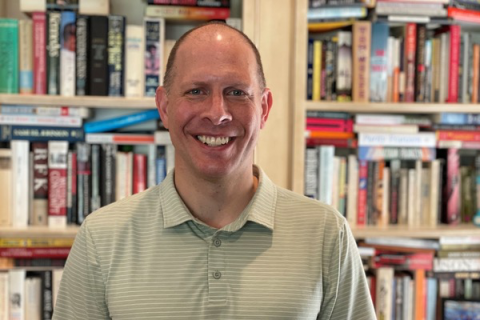Opinion - Missouri Times

The Missouri Times published an opinion piece this week penned by Tyler Nottberg, Aligned's co-founder and the Chairman and CEO of Kansas City-based U.S. Engineering, that gives an executive's perspective on fine-tuning Missouri's early childhood system. Read below.
Build. Solve. Evolve.
That’s our motto at U.S. Engineering, where I have the privilege of serving as Chairman & CEO. We have been anchored here in Missouri as a mechanical contracting firm for over 130 years, and if there is one thing that our leadership team understands, it is that we are only as good as the team members we hire. That’s why more than 10 years ago, I co-founded Aligned, a business leader-led education advocacy organization to ensure that our state would be able to meet the challenge of cultivating the next generation of citizens and workers. Our goal was to secure a more robust education system, solve systemic problems that impede growth, and create an environment where students would be able to pursue an academic journey toward the future of their choice.
Since Aligned’s inception, early childhood education has been the cornerstone of our legislative agenda. When we started advocating in the hallways of the Missouri State Capitol, the annual state investment in preschool programs was $15 million, and the state legislature had passed a ban on measuring quality in childcare and early education. Since then, we have made impressive gains that paved the way for millions in federal preschool grants, the establishment of a state office focused solely on early childhood education, and new investments in childcare and early education serving thousands of students statewide.
We have worked closely with dozens of lawmakers to educate leaders on brain science, systems infrastructure, and the components needed to create quality programs. In the 2025 fiscal year, lawmakers doubled Missouri’s state foundation formula for pre-kindergarten funding and appropriated $82 million to the Missouri Quality Pre-K (MOQPK) grant programs. Together, these measures represent a historic investment in our youngest citizens that will generate significant returns from our state programs. And for that, we applaud the wisdom and leadership of Governor Mike Parson and the Missouri General Assembly to make these substantive investments in early childhood.
Appropriating funds is only half the battle. Missouri serves its children through a mixed delivery model and makes funding available for early education settings including school-based, center-based, faith-based, and home-based. However, the current distribution channels for this funding create challenges for some to take advantage of the money that is available since the system was built as a one-size-fits-all model best deployed in public school settings.
The legislative and regulatory frameworks designed to maintain accountability and transparency sometimes have the unintended consequence of complicating the efficient and effective use of funds. For example, a grant program that places a per-pupil funding cap equal to the state adequacy target of less than $7,000 only covers the partial costs of a full-day, early childhood program. Funds distributed in a block grant manner would remove obstacles for community providers to utilize them.
As a fifth-generation mechanical contractor, I know that even the most ambitious construction projects can fall short if critical systems aren’t delivering results where they’re needed most. As we approach the next legislative session in January, I encourage lawmakers to focus on creative solutions to improve the circulation of early childhood investments and provide flexibility to support public-private partnerships as local communities work to build out high-quality early childhood programs.
A simple restructuring of the Missouri Quality Pre-K grant program to account for challenges unique to community provider settings would ensure a fair and equitable distribution of resources. This sort of reform will be critical for communities to be able to implement plans successfully.